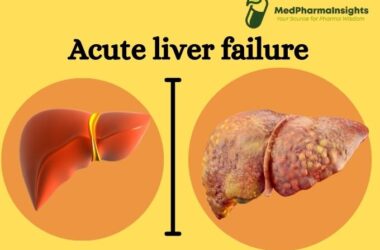Hepatitis A is a contagious liver infection caused by the Hepatitis A virus (HAV). This viral illness can range from mild to severe and can lead to significant health complications if left untreated. Understanding the causes, symptoms, and prevention measures for Hepatitis A is crucial for safeguarding your health and the health of those around you.
How a person get hepatitis A virus ?
Hepatitis A is primarily transmitted through the ingestion of contaminated food or water. The virus is commonly found in the feces of infected individuals and can spread through various means:
- Consuming Contaminated Food: Eating food that has been prepared by an infected person who did not practice proper hand hygiene can expose you to HAV. Raw or undercooked shellfish from contaminated waters is also a potential source.
- Drinking Contaminated Water: Drinking untreated water from contaminated sources or ice made from contaminated water can transmit the virus.
- Close Personal Contact: Hepatitis A can be spread through close personal contact with an infected person, including household members, sexual partners, or caregivers.
- Poor Hygiene: Touching surfaces or objects contaminated with HAV and then touching your mouth can lead to infection. Proper handwashing is essential in preventing its spread.
Is Hepatitis A virus dangerous ?
NO Typically, the hepatitis A virus is not harmful. Nearly everyone who has it recovers. But since it can take some time to go gone, you’ll need to look for yourself in the interim.
Causative agent
Hepatitis A virus (HAV) is a non-enveloped RNA virus and a major cause of acute hepatitis worldwide, accounting for up to 25% of clinical hepatitis in the developed world.
Symptoms of Hepatitis A
The symptoms of Hepatitis A can vary from mild to severe and typically appear 2 to 6 weeks after exposure. Some common symptoms include:
- Fatigue: Feeling unusually tired and weak.
- Jaundice: Yellowing of the skin and eyes, which is a sign of liver dysfunction.
- Abdominal Pain: Pain or discomfort in the upper right side of the abdomen.
- Nausea and Vomiting: Feeling queasy or vomiting.
- Loss of Appetite: A decrease in appetite and weight loss.
- Diarrhea
- Urine may become dark in color & Clay-Colored Stools: Stools may appear pale or clay-colored.
- Fever: Low-grade fever may be present.
It’s important to note that some people, especially children, may not show noticeable symptoms, which makes the virus more challenging to detect and control.
Diagnosis
- IgM (immunoglobulin M) antibodies when the body is initially exposed to hepatitis A, they are produced. They survive in the blood for three to six months.
- IgG (immunoglobulin G) antibodies These appear following the virus has been present in the body for some time. They shield the body from hepatitis A. If someone tests positive against them but not for IgM antibodies, it indicates that they have either had hepatitis A in their lifetime or have received vaccines to prevent it.
Prevention
Hepatitis A vaccine can prevent hepatitis A.
Children need 2 doses of hepatitis A vaccine:
- First dose: 12 through 23 months of age
- Second dose: at least 6 months after the first dose
Older children and adolescents 2 through 18 years of age who were not vaccinated previously should be vaccinated.
Adults who were not vaccinated previously and want to be protected against hepatitis A can also get the vaccine.


Hepatitis A vaccine is also recommended for the following people:
- International travellers
- Men who have sexual contact with other men
- People who use injection or non-injection drugs
- People who have occupational risk for infection
- People who anticipate close contact with an international adoptee
- People experiencing homelessness
- People with HIV
- People with chronic liver disease
Treatment & Management
Hepatitis A is a viral infection that primarily affects the liver. Unlike some other forms of hepatitis, there is no specific antiviral medication to treat Hepatitis A. However, most cases of Hepatitis A resolve on their own with time and supportive care. Here’s what you need to know about the treatment of Hepatitis A:
- Rest and Fluids: The most important aspect of treating Hepatitis A is rest. Your body needs time to fight off the infection, and getting plenty of rest helps it do just that. Additionally, staying hydrated is crucial, as the virus can cause nausea, vomiting, and diarrhea, which can lead to dehydration. Drink plenty of fluids, such as water, clear soups, and oral rehydration solutions, to maintain your hydration levels.
- Nutritious Diet: Eating a well-balanced diet is important for individuals with Hepatitis A. While you may have a reduced appetite, try to consume small, frequent meals that include a variety of nutrients. Avoid alcohol during this time, as it can further stress your liver.
- Symptom Management: Over-the-counter medications, such as acetaminophen (Tylenol), can help relieve symptoms like fever and pain. However, avoid medications like ibuprofen or aspirin, which can be harmful to your liver.
- Avoiding Alcohol and Certain Medications: It’s essential to avoid alcohol and any medications that may be harmful to your liver while you have Hepatitis A. Your liver is already under stress, and these substances can exacerbate the damage.
- Follow Medical Advice: If you have severe symptoms or complications, your healthcare provider may recommend hospitalization. Hospital care can help manage complications and provide intravenous fluids and other treatments as necessary.
- Isolation and Hygiene: Hepatitis A is highly contagious, so it’s important to take precautions to prevent its spread. Wash your hands thoroughly with soap and water, especially after using the restroom, and avoid close contact with others until you’re no longer contagious.













